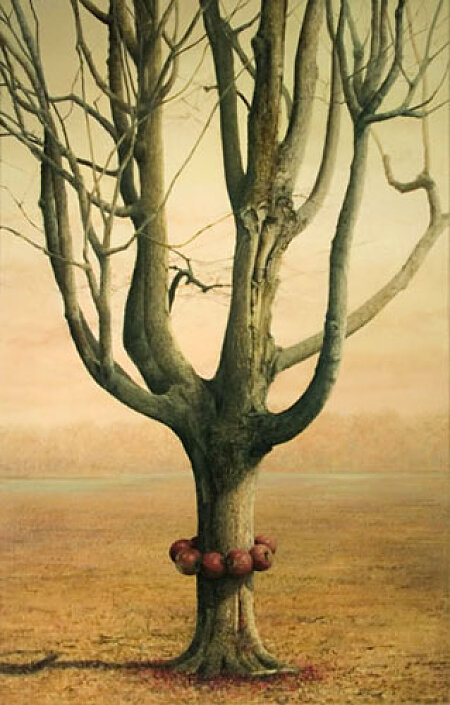
The Eternal Shore
She lived in a small house by the shore.
I was in love.
I came to visit her. We walked along the shore, listening to the waves. Sometimes, we talked; sometimes, we didn’t need to talk. We took turns cooking, and at night, when we fell asleep, our future was bright, and our dreams were intertwined, promising a life of happiness and understanding.
There were times when we went for a drive. Her dog loved to come along. We would disembark in one of the nearby parks. The sun, the rain, the green grass, the falling leaves—all of these things welcomed us. The world was a stage built just for the two of us. We knew we were safe. Nothing could hurt us.
I remember the hours we spent by the fire, watching the flames, with their eternal life of motion, their ability to improvise a myriad of scenes from the past and the future. The nights would get quite cold, but we felt protected by the small circle of warmth we had built.
Finally, she invited me to stay. “You don’t have to leave,” she said. “What’s the point? Aren’t you happy here with me?”
“Yes, I am,” I replied.
I was truly happy.
A few idyllic months followed. But oh, the strange, contradictory way in which we are built! Some time passed, and I began to miss the city. I was accustomed to its noises, its never-ending bustling life. Sometimes, the sound of cars in the distance woke me at night—and then I realized it was the ocean, that gray foamy giant that kept watching us while we slept. The ocean was busy making its long-term plans it had thousands of years to fulfill. It didn’t share its plans. When it talked, it spoke in a different language. I didn’t understand its words.
Sometimes I feel that she did. And she would look at me with sadness, knowing that death and loneliness were built into us from birth, with their inevitable collection of farewells.
Perhaps she let me go before I realized I had to go?
Finally, the day came when I knew I couldn’t stay. I invited her to come along, but I didn’t think she would.
“I’ll wait for you,” she said.
“I’ll be back,” I promised.
Back home, I became submerged by an avalanche of things to do. Friends I had missed, calls to return, business matters to settle. I had been so involved in our seashore romance. I had let everything else fall behind.
Then, someone else showed up. Someone from my past. She distracted me. I wasn’t sure whether I wanted to return to the ocean. To live on the very edge of the human habitat. To face the endless onslaught of the waves. To be deprived of the life that one can have here, in the city!
The longer I stayed, the easier it was to postpone my return. We spoke on the phone every day, then every other day, then every week. She knew the future we had been so confident of just a while earlier was now out of reach. It didn’t belong to us anymore. If we were to recapture it, we had to act quickly and decisively. One of us would have to give something up.
Our last conversation was sad, indefinite, the feeling of doom tangible over the wire.
“I’ll wait for you,” she said once again.
“I’ll be back,” I said.
At that moment, I felt such sadness and longing that all my busy affairs became unimportant. The life I led had been so empty without her—how could I have been away for so long? I decided to give everything up and go back.
I could not wait to see her again. I had never felt as comfortable with anyone before—and would never be granted another chance like this. It’s strange how the knowledge we already possess does not always disclose itself immediately. It sleeps inside us, awaiting the right moment to reveal itself.
How could I have been so clueless?
I settled my affairs. This time, there would be no need to return to this city, so full of cars, so empty of the ocean’s eternal conversation. So empty of her.
My accident was quite common—nothing unusual at all, nothing to tell about. As I was dying, I could see her face hovering over me, her sad smile, her beautiful blue eyes that knew all about the loneliness that is built into us from birth and the endless farewell of this life.
“I’ll wait for you,” she said.
Some time had passed. I hadn’t told anyone how to reach her. No one let her know. In the mornings, when the mist from the ocean floats in, perhaps she is waiting for me. And at night, as she makes the fire, she waits for me to step out of the darkness and sit next to her in the circle of warmth she had built for herself.
For ourselves.
A whole life can go by so quickly. But if I could, I would have been there.
She must know that.
If you see her, please tell her not to wait for me anymore.
